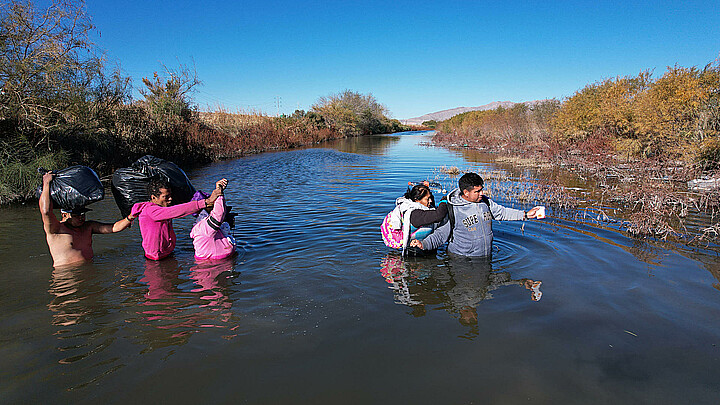Human Rights
Dershowitz: Disproportionate Latino traffic stops near Texas border operation could raise civil liberties issues
Gov. Abbott’s Operation Lonestar at the border has coincided with quadrupled traffic stops for Texan Latinos
August 23, 2022 9:09am
Updated: August 23, 2022 2:32pm
Texas Gov. Greg Abbott’s Operation Lonestar mobilization of National Guard troops at the border has also drawn so many state troopers to the area that the number of traffic stops and tickets have begun disproportionately affected Hispanic American residents, according to an NBC special investigation.
The troopers have been ordered there to provide law enforcement support for the National Guard and also search for smugglers who may be trying to sneak undocumented migrants or unaccompanied children across the border illegally.
Data examined by the network shows that the number of citations in Kinney County more than quadrupled according to data analysis, jumping from 1,400 in 2019-2020 to more than 6,000 in 2021-2022, far exceeding others Texas counties.
The report also indicates that the number of law enforcement officers in the are also tripled to 3,674.
Following Kinney County, Dimmit County jumped from about 1,100 to nearly 4,000 citations, Zavala County more than 3,000 to about 5,500, La Salle County more than 3,000 to 5,000 and Maverick County 4,500 to just under 6,000.
“As citations climb, residents decry a loss of freedom and civil liberties as they are pulled over for what they and civil rights groups say are questionable reasons and grilled or searched without probable cause. Some say they fear for their safety as high-speed pursuits by troopers have turned deadly.”
The article quoted area Hispanic residents who complained about getting pulled over recently and in some instances, cited by police for minor traffic issues.
Some constitutional scholars say that this could be a problem for police and Texas state authorities even if there is no discriminatory intent and the citations are creating a ‘disproportionate impact.’
When asked if the issues raised by NBC are something that should be viewed as a civil liberties concern or just an unintended ‘secondary effect,’ Harvard Law Professor Alan Dershowitz said, “it could be both.”
“Even if it is unintentional, the police could have a problem,” Dershowitz told ADN America in a Tuesday morning telephone interview. “A pattern of selective stopping could raise civil liberties questions.”
In one instance, NBC quoted a a 73-year old retired Latino police officer who said he never had a problem getting pulled over until Gov. Abbott’s Operation Lonestar was launched the border.
“I never had this problem before this border situation came into their minds. We were just a regular little sleepy town and all of a sudden now, its pursuits everywhere and that’s because there are so many, a flood of law enforcement officers here,” said Richard Gonzalez, a veteran California patrol officer who now lives in Brackettville, Texas, a town of only 1,642 where tickets have quadrupled.
The report indicated that the stops are “increasingly seen by some residents as targeted at Latinos or at people who fit a stereotype. Many officers are from other parts of the state with smaller Latino populations, although there are Hispanic troopers in Operation Lonestar.”
To that end, the troopers’ stops have triggered concerns from the American Civil Liberties Union and Texas Civil Rights Project resulting in the groups asking the U.S. Department of Justice to look into the matter.
The groups wrote to Attorney General Merrick Garland to allege that Texas Department of Public Safety officers were conducting unnecessary stops and racially profiling drivers. They also claim to have linked 30 deaths to traffic pursuits since Operation Lonestar began.
Dershowitz said that police need to be careful because even if the results are unintentional it could cause the law enforcement community problems, citing a previous case that involved a traffic stop on the New Jersey Turnpike where similar issues were examined by the Court.
“The Court has found there can be both collateral consequences and civil liberties violations,” he said. “Police have to be sensitive to not selectively enforce the law.”








